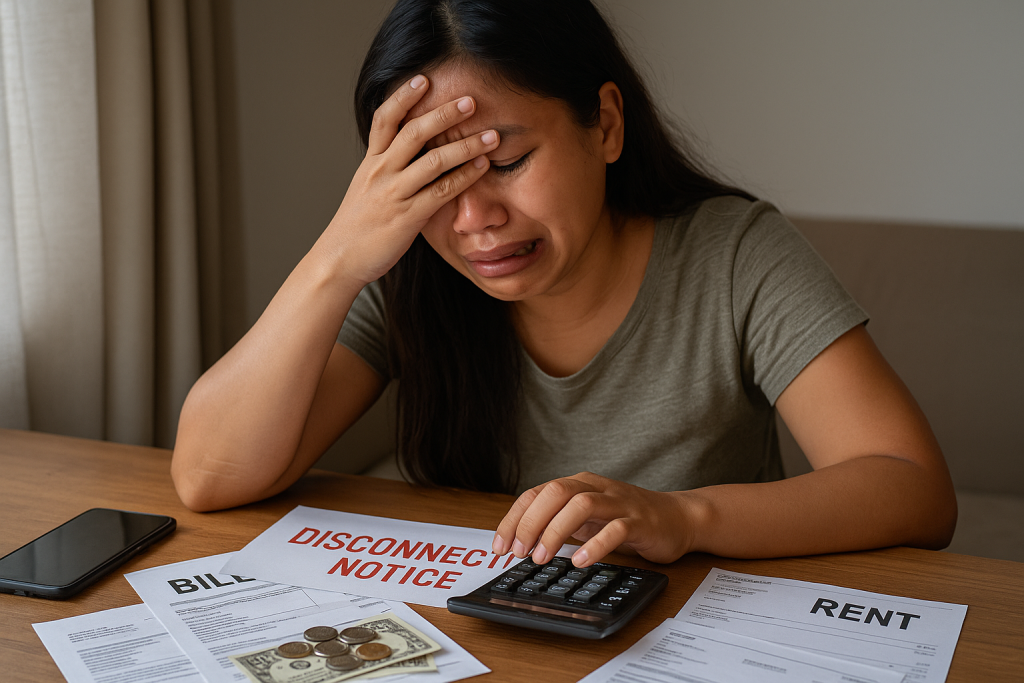Some breakdowns don’t happen all at once. They build up, quietly, until one day—you snap.
That’s the haunting reality behind Straw, a powerful Netflix film that doesn’t just show a woman’s descent into crisis—it reveals the invisible weight many of us carry daily.
The kind we don’t post about. The kind that says, “I’m okay,” even when we’re drowning in bills, caregiving responsibilities, and broken systems.
Watching Straw hit me hard.
As a mom to two young children, I couldn’t stop crying through so many scenes.
I saw pieces of myself in Janiyah—trying to keep it together, juggling work, being a mom, being a daughter, showing up for everyone, every day.
But what broke me most wasn’t just her pain. It was the silence she carried. And how no one really saw her unraveling until it was too late.
I kept thinking, what if I didn’t have a husband who supports me, who shares the load?
What if I had to face all of this alone?
That’s what made Straw so powerful.
It wasn’t just about her breakdown.
It was about how easy it is to break when you’re carrying everything—mentally, emotionally, financially—with no room to breathe.
The Financial Domino Effect We Rarely Talk About
The film starts with something many would consider small: a missed rent payment.
But it snowballs.
Miss rent, and you get evicted.
Lose your job because you’re late picking up your kid.
Lose your car. Lose your stability. Lose your grip on reality.
That’s not exaggeration—that’s what financial fragility looks like.
One unexpected event is all it takes. A medical emergency. A layoff. A broken car. And suddenly, you’re behind on everything.
For many families—especially solo parents—there’s simply no backup plan. No emergency fund. No village. No grace.
And the most heartbreaking part?
The system is not designed to catch you.
Late fees, penalties, eviction notices, judgmental bosses, and indifferent institutions pile on.
When Financial Stress Becomes Emotional Trauma

Janiyah didn’t just lose money.
She lost her sense of worth. She questioned her identity as a mother, a worker, a person.
And that’s real.
Financial stress is one of the leading causes of anxiety and depression.
When you’re constantly calculating how to stretch your last few pesos, you’re not just stressed—you’re in survival mode.
I’ve felt that too.
There were seasons when our income wasn’t enough, and I’d stay up at night doing mental math:
Pambili ng gatas, pambayad ng kuryente, pang-groceries…
And I still had a partner to lean on.
What more for those doing it all alone?
Financial fragility isn’t just about being broke.
It’s about the fear that one wrong move will take everything down with it.
That you have no safety net.
That you’re walking on a tightrope while carrying everyone else on your back.
So What Can We Do?

We can’t control everything. But we can start building our own form of protection.
Here are small but meaningful steps we can take:
✅ Create a Bare Minimum Emergency Fund
You don’t need 6 months right away.
Start with P1,000.
Then aim for P5,000.
Then one month’s worth of expenses.
Little by little. Kahit barya, basta tuloy-tuloy.
✅ Track Where Every Peso Goes
Awareness is power.
When you know your inflow and outflow, you can make better choices.
Even just writing expenses down on paper is a start.
✅ Automate Where You Can
Auto-save P50 per day if possible.
Small automation helps build habits without needing to decide daily.
✅ Build a Village
You shouldn’t have to do it alone.
Build relationships with people you trust.
Talk about money with your partner, your family, your friends.
There’s power in not struggling silently.
✅ Get Educated
Financial literacy is a form of self-defense.
Keep learning.
Follow pages that teach.
Ask questions.
Seek out community programs.
The Power of Being Seen

Maybe you watched Straw and felt triggered. Or seen. Or both.
That’s valid.
Because for many of us, financial fragility isn’t just a theory.
It’s the life we live, quietly.
It’s choosing which bill to pay first.
It’s staying strong for the family when you feel like breaking.
It’s not having space to be tired.
If that’s you, know this: you are not weak. You are carrying too much.
And it’s okay to ask for help. It’s okay to start again. You are not alone.
Let’s keep talking about these things.
Let’s create space where we can admit when we’re struggling—and find ways to support each other.
Because being strong doesn’t mean carrying everything by yourself.
And breaking down doesn’t mean you failed. It just means something needs to change.
And it can. One step at a time.
Join my email list and let’s keep in touch!

